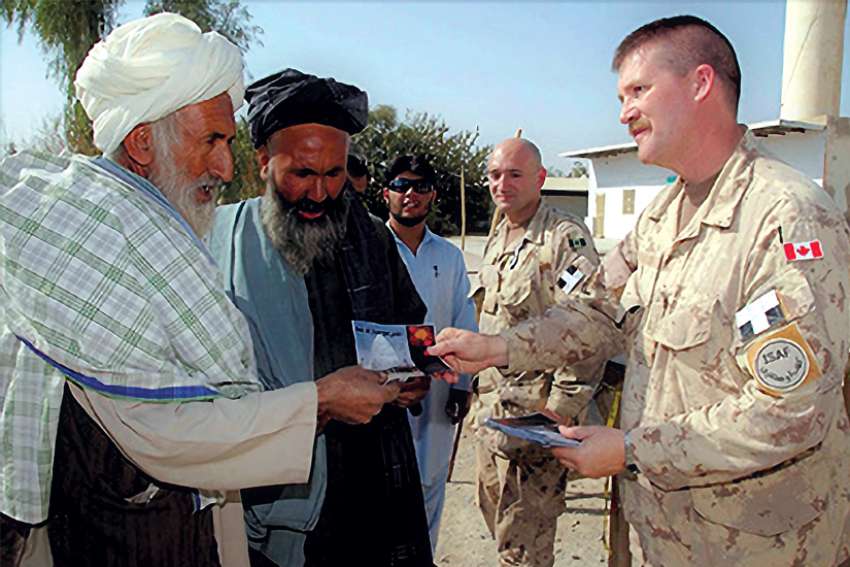As a retired military chaplain, and as a priest of the Military Ordinariate of Canada, to say nothing of being a Canadian citizen, I take umbrage at the panel’s outright assault against the Catholic Church and the Judeo-Christian heritage at the core of this country’s ethical, moral and spiritual life.
As early as the 1620s, Jesuit missionaries brought the faith to this land and many Indigenous peoples have embraced and sustained it. Many Indigenous communities have well over 150 years of Christianity at the centre of their lives.
Additionally, those who came to this country even before the onset of the First World War brought their faith and had it woven into the fabric of Canada. Jewish and Christian chaplains of the British Empire were enlisted to serve the spiritual needs of those fighting for freedom, distinguishing themselves in the line of duty, as did so many who fought and died. Their legacy continues and now includes Orthodox and Byzantine Christians, and Muslim chaplains.
In my 20 years as a chaplain, I had the privilege of continuing that service and ensuring the faith of all under my care. In Bosnia-Herzegovina in 1998 and Afghanistan in 2002, I engaged with soldiers who were Muslim and desired the opportunity to attend Mosque. I made it happen for them. I went toe-to-toe with an admiral to defend the right of a Muslim soldier to have a beard, even though it was shorn as close as possible while maintaining both his faith and operational requirements.
The website for CAF Chaplaincy outlines the responsibility for fostering the spiritual, religious, and pastoral care of Canadian Armed Forces members and their families regardless of religious affiliation, practice or belief. Without these men and women serving our service men and women, an integral part of the “total defense” ideology would be lost.
The education required of chaplains prior to enrollment is deliberate. Standards by which chaplains can be held professionally accountable ensures that across a given denomination, they consistently reflect the teachings with integrity and uniformity of practice. That ensures broader coverage for the various denominations with the assurance that, alongside the Chaplaincy’s own Code of Conduct and that of the Canadian Armed Forces (CAF), our military men and women can be served spiritually, professionally and at a level of assessable competence.
Without means by which they can be properly assessed, chaplains could do more harm than good. I was approached in 2010 by three Wiccan adherents who had lodged a formal complaint that no Wiccan chaplain was enrolled in the CAF. After investigating, I reported there were two reasons: There was no record of any Wiccans having applied in the previous five years to become chaplains, and there was no standard of education for Wiccan chaplains to be assessed at a professional or denominational level. What the Advisory Board proposes to invoke is precisely this inconsistency where no measurable standard, outside of what one thinks or feels, can be used to hold someone accountable.
The idea of having “knowledge keepers” or multi-denominational chaplains who have little or no connection to one faith or another would leave chaplains with no foundation to defend spiritual convictions. The very fact of being “multi-denominational” treats spirituality as a mere thing and not an intimate part of who a person truly is.
The Chaplaincy’s structure affords troops the spiritual care they seek and deserve, according to their own faith convictions enshrined and protected in the Constitution and the Charter of Rights and Freedoms, both of which the advisory panel deems fit to ignore. It also dismisses their right to serve and their right to be respected for their beliefs and practices of faith, the legacy of faith in their lives, their families and in the world in which we live.
Faith is a way of life, not a post-nominal at the end of your name.
(Fr. Timothy Nelligan is pastor of Blessed Sacrament Parish in Ottawa and a long-serving veteran of the Canadian Armed Forces.)


